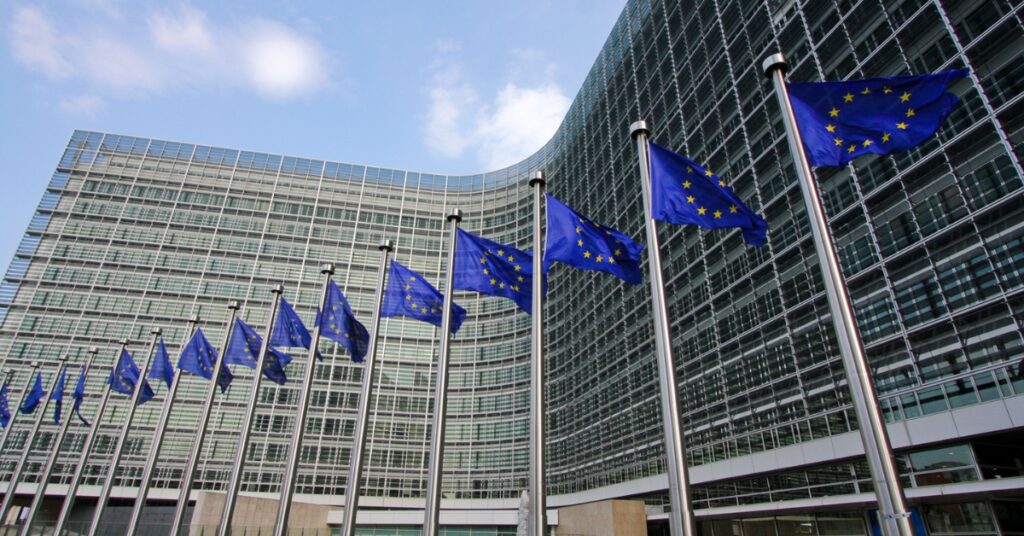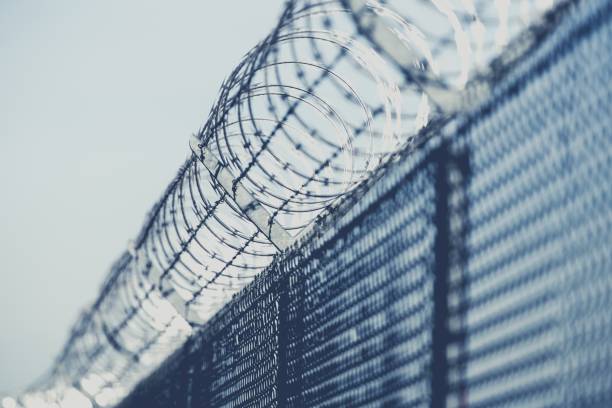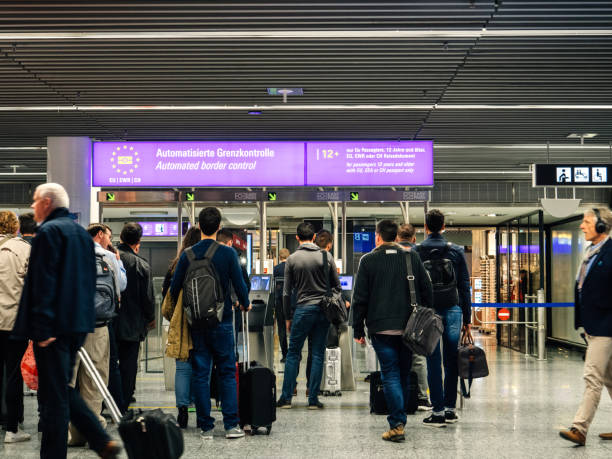
A new draft from the Danish presidency of the Council of the European Union would significantly weaken legal safeguards for migrants and asylum seekers under the proposed EU-wide deportation regulation.
Shared with member states in late September, the document aims to speed up deportations and expand detention powers, while removing key mentions of human rights obligations.
The draft is part of ongoing talks in the Council to create a unified system for returning third-country nationals “staying illegally” in the EU.
According to Statewatch, a civil-liberties watchdog that reviewed the text, the proposal seeks to “remove administrative barriers” and “streamline” deportations by giving governments more freedom in how they handle the process.
Legal remedies, oversight reduced
Statewatch found that the new draft removes clauses that require authorities to follow the non-refoulement rule—the ban on sending people back to danger—and drops the right to a full review of appeals before deportation.
The group said that the proposal would “transfer procedural duties from member states onto deportees” and allow deportations with minimal oversight.
Under Article 25, people would no longer be guaranteed free legal aid.
Article 7 would let governments issue deportation orders using “generali[z]ed information sheets or machine-generated translations,” instead of requiring clear language and written proof that the person received the decision.
For unaccompanied minors, access to free legal help would depend on national laws. The draft also removes deadlines for filing appeals, and deportations would continue even while a case is being reviewed in court.
Expanded detention powers
Article 29 expands the reasons someone can be detained to include “non-cooperation in obtaining travel documents” or other vague “relevant grounds.” Even people waiting for their travel papers could be held in detention.
Article 30 allows detention if a person shows an “explicit expression of intent of non-compliance,” while Article 32 lets authorities extend detention as long as removal is still considered “reasonably possible.”
The draft also lowers detention standards. It would now allow migrants to be kept in regular prisons—something previously banned—“if necessary for facility operations.” Access to outdoor areas could be limited for the same reason.
Rules that once guaranteed hygiene, food, and medical care for detained minors have been removed, and gender-specific protections are no longer required.

Data sharing, entry bans
Article 38 removes the rule that shared personal data must be “adequate, relevant, accurate and limited.” Frontex would also no longer need to check if sending data to non-EU countries could lead to refoulement—returning people to places where they might be in danger.
The draft also allows entry bans of up to 20 years, compared to the current standard of five years and a maximum of ten years in special cases.
Protection for children, families weakened
The proposal deletes all mentions of the “best interests of the child.” Article 19 removes the rule requiring expert age assessments by a team of specialists, and Article 20 drops the protection that unaccompanied minors must get help from independent organizations before deportation.
Families with children would also lose automatic protection from being deported to non-EU countries.
Steve Peers, a professor of EU law at the University of Essex, has said EU asylum policy has already hit “rock bottom.” Statewatch added that member states “have found new depths to sink to” in their treatment of non-citizens.

Administrative shortcuts, enforcement measures
The presidency draft allows authorities to collect biometric data “using means of coercion” and expands search and seizure powers without needing clear consent.
Governments could also restrict where deportees live or travel within the EU to “ensure an effective return.”
The draft removes deadlines for voluntary departures and permits “dissuasive measures” against people who don’t cooperate—without explaining what those measures are.
It also gives member states more freedom to make deportation or readmission deals with non-EU countries without informing the European Commission.
References to reintegration support have been deleted, making participation in EU-funded post-return programs optional.
Returns, borders, travel systems
The Deportation Regulation is meant to work alongside other EU migration systems, like the European Travel Information and Authorization System (ETIAS) and the Entry/Exit System (EES).
These digital systems record when non-EU travelers enter and leave the Schengen area.
Once linked to the deportation framework, ETIAS could automatically deny travel authorization to anyone with an EU-wide entry ban, while the EES would help border officers spot overstays in real time.
Together, they would form an automated network that connects return orders, biometric data, and travel records.
For long-term residents and migrant workers, the Regulation’s broader “security risk” clause could allow longer bans “where justified and proportionate,” even for those who previously lived legally in the EU but temporarily lost their status.

Effects on travelers, migrants
Short-term visitors could face stricter checks if they’ve previously overstayed or been deported.
Linking the deportation database with ETIAS and EES would let authorities automatically flag these travelers. Once flagged, they could be denied travel authorization until their entry ban ends.
Asylum seekers could also be detained earlier and for longer, since the Regulation allows detention “to ensure effective return” even during voluntary departure periods.
With EES tracking movements in real time, deportations could happen right after an asylum claim is denied.
Over time, the Regulation could build a lasting deportation system across Europe. By reducing oversight and removing safeguards, it risks making enforcement and removals a higher priority than fair review.
The human reality behind policy
Talks on the Regulation are still ongoing in the Council’s working groups. Most member states support the presidency’s goal of speeding up deportations, while some want even stronger enforcement measures.
The European Parliament will review the proposal once the Council agrees on its final position.
It’s still unclear whether lawmakers will bring back the deleted safeguards—especially those on minors, legal aid, and limits on detention.
For now, the presidency’s draft sets out a system where deportations could move faster, detention rules could expand, and human-rights oversight could weaken across the EU.
